2022 REPORT ANNUAL



2021–June 2022)


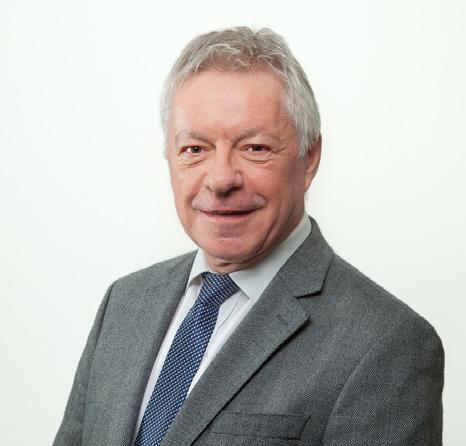

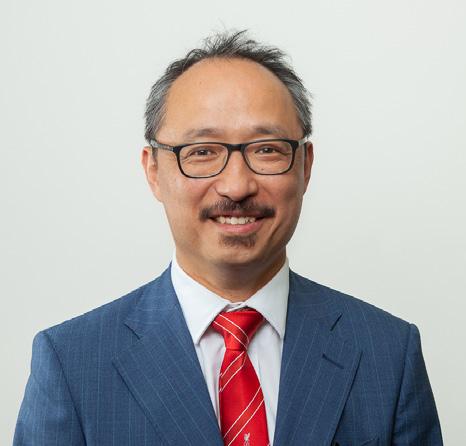
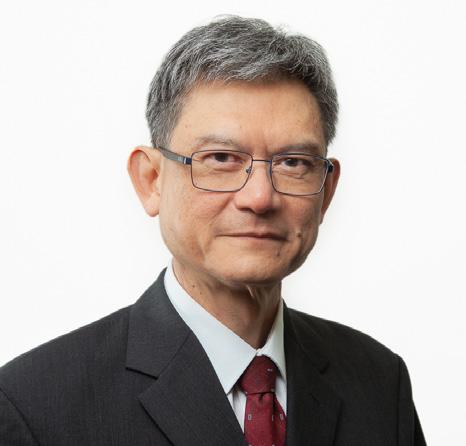

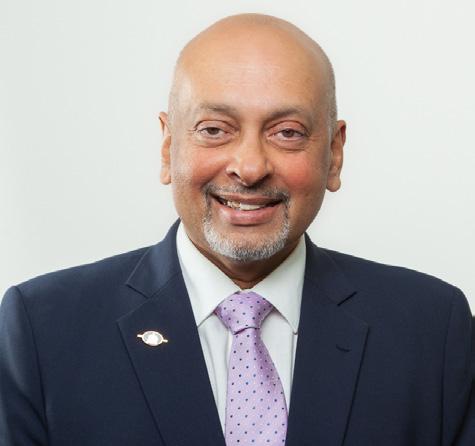
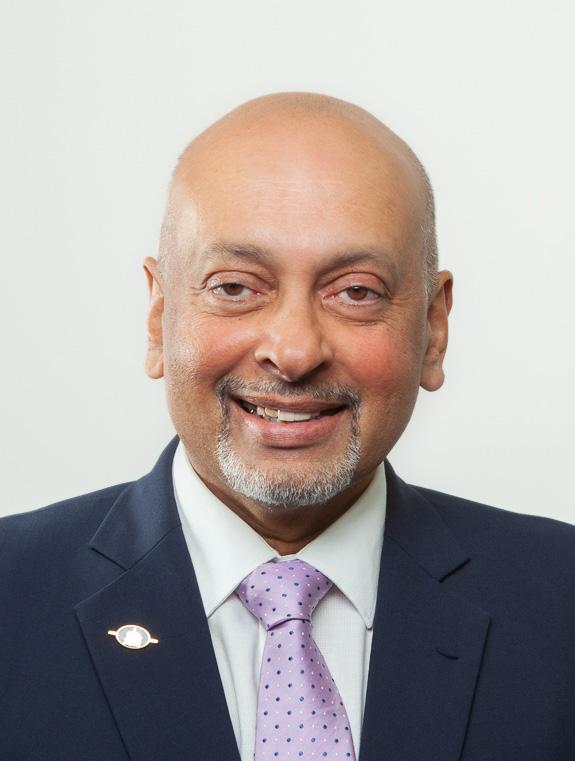
We know these effects have and will continue to stress the healthcare system and cost patient lives.
Within the College, the impact of COVID-19 over the year has been marked. It was felt strongly, not just in our finances, but in other areas as well, such as internal communication and staff retention. As in the previous year, COVID severely affected the cost of the College examination system in 2021–22. Over the year the cost of our exams totalled $3 million including travel, accommodation, marking, consultation and invigilation across the various venues. In 2019–20, the cost was just $1.39 million.
Advocacy remains a key activity of the College. The College has also worked hard on behalf of its New Zealand members, holding discussions with Manatū Hauora–Ministry of Health, Te Whatu Ora–Health NZ, Te Aho o Te Kahu–Cancer Control Agency, Te Kaunihera Rata o Aoteroa–Medical Council of New Zealand and other organisations. Our 2021 NZ annual scientific meeting in Wellington was the best attended yet, with more than 300 delegates.
History will record that the Presidential baton was passed to me about a year ago in the midst of a global health crisis, with a pandemic affecting almost everything we do as a professional body, and with many other issues, big and small, threatening our work and our responsibilities to society. But the thing about a baton is that you can’t hand it back—you take it and run with it, and that is what I and our Board have been doing in 2021–22.
Whether the threats are the health implications of climate change, the trade impacts of a major European war, or the arrival of new private players in the continuing professional development (CPD) market, to name just a few, we surely live in a challenging time, but one to which we must adjust or fall behind.
Governments and the public at large would like to believe the COVID-19 pandemic is now behind us, but doctors and health workers know better. That’s because they are still in the trenches coping with knock-on effects such as burnout from understaffing, shortages of IV contrast agents, delayed screening services and a backlog of cases waiting for cancer treatment.
Despite the extraordinary obstacles, the year was also one of significant achievement. The first phase of the College’s 2022–24 triennial strategy was implemented, with noteworthy progress in our new focus on innovation and inclusion.
Toward the strategic goal of innovation, RANZCR finalised a position paper on the regulation of artificial intelligence (AI) in medicine. The paper is a guide for managing risks and opportunities which will give clarity to AI developers and others and aid the development of AI-related regulations to safeguard patients. In a separate initiative we have progressed our collaboration with the GPs over the use of clinical decision support (CDS) tools in medical imaging.
Toward the goal of greater inclusiveness in the medical workforce, RANZCR became the lead organisation in a consortium of 12 specialist colleges which has secured funding for an Australian Indigenous Doctors’ Association (AIDA) project to support Aboriginal and Torres Strait Islander (ATSI) specialist trainees. According to AIDA, there are currently about 50 ATSI medical specialists and 100 ATSI non-GP trainees. To mentor trainees, remove barriers and grow numbers, the Australian government has allocated almost $30 million over the next four years into this and other AIDA support projects.
During the year we were successful in ensuring that a budget commitment made by the previous Coalition government in Canberra will be honoured by the new Labor government. In the 2021/22 federal budget, the outgoing government committed $66 million towards the de-regulation of MRI licences in rural and regional areas; this will begin implementation in November 2022. In addition to this, indexation of MRI services recommenced on 1 July 2022.
Over the year, the College advised the Australian Department of Health on 18 separate matters, including responses to Medical Services Advisory Committee applications for new MBS items, and a successful advocacy for the MBS listing of prostate-specific membrane antigen PET imaging for prostate cancer.
All in all, given the circumstances, a satisfactory year’s work. Yet much remains to do, in areas such as reducing medical waste and greenhouse emissions from the healthcare sector, both major environmental problems for us. Also, in addressing continuing workforce shortages, a state of affairs which is hurting—physically and mentally— specialists, junior doctors, nurses and allied health workers as they struggle to keep the system running in tough conditions. We all need to contribute and work together to see us and our colleagues into better times.
Eight new Specialist Training Placements and Support (STPS) posts commenced. Fifty funded STPS posts were secured in total (of which 25 are private), with an additional eight clinical radiology posts bundled with metropolitan settings. One new Integrated Rural Training Pipeline (IRTP) post commenced at Townsville University Hospital, with five funded IRTP posts secured in total. All targets were met.
RANZCR’s advocacy work secured a commitment in the 2021/22 Federal budget for the de-regulation of MRI licences for MMM 2-7 areas with funding of AU$66 million. The new Government has supported this commitment with implementation scheduled from 1 November 2022.
Participated in the Ministerial Roundtable on development of the Australian Cancer Plan.
Provided support to New Zealand’s Te Aho o Te Kahu (Cancer Control Agency) in the development of the Cancer Services Planning document.
Acted as a trusted advisor to the Australian Federal Government on 18 consultations across the Department of Health, including responses to Medical Services Advisory Committee applications for new MBS items.
Submitted a letter of support for listing of PSMA PET scanning for men with prostate cancer, which was listed on the MBS from 1 July 2022.
As part of RANZCR’s commitment to defining, consolidating and advancing interventional radiology and interventional neuroradiology as clinical radiological specialties, RANZCR announced its plan to seek specialty recognition with the Australian and New Zealand regulatory bodies for interventional radiology and interventional neuroradiology, proposing to submit an initial application to the Medical Board of Australia later this year.
To support and strengthen this, the College has published the Specialist Interventional Radiology and Interventional Neuroradiology Range of Practice, the inaugural Standards of Practice for Interventional Radiology and Interventional Neuroradiology and is progressing the development of dedicated training pathways for these fields of specialty practice.
During the iodinated contrast media shortage in mid2022, RANZCR provided advice to government in both Australia and New Zealand, liaising with manufacturers, providing leadership to the whole healthcare sector via publication of a position statement, supported by seven media interviews from the President.
RANZCR held meetings regarding ethical referrals with the Health and Disability Commissioner, Medical Council of New Zealand, Royal Australasian College of Surgeons, Ministry of Health and ACC.
RANZCR began a review of the Accreditation Standards for clinical radiology and radiation oncology and conducted 23 accreditation site visits.
The Selection Review Working Group delivered reports on how RANZCR is able to meet the AMC requirements for specialty training.
Training site accreditation assessors: 77 (26% increase)
Accredited training sites: 216 (161 clinical radiology, 55 radiation oncology)
We raised the profile of clinical radiology and radiation oncology among medical students in New Zealand through presence at ECCO and New Zealand Medical Students Association Conferences.
We secured support from the New Zealand Cancer Society regarding New Zealand’s radiation oncology workforce issues.
In October, RANZCR formalised our relationship with the Australian Indigenous Doctors’ Association via a memorandum of understanding, through which we will share advice and perspective on policy and advocacy matters and ensuring effective support is in place as we work to encourage more Aboriginal and/or Torres Strait Islander trainees into our training programs.
We are also progressing priority projects on safe working, gender parity in radiology, regional and rural workforce issues and a workplace survey.
We released a video campaign for World Cancer Day featuring Targeting Cancer Ambassador Julie McCrossin discussing the topic of Closing the Care Gap with patients, Indigenous cancer care workers and radiation oncologists.
RANZCR published a Position Paper on the Regulation of Artificial Intelligence in Medicine to provide clarity for AI developers and the rest of the healthcare system while safeguarding patient care. The paper will guide the development of a robust regulatory framework for AI technology in medicine, and help manage the risks and opportunities that the introduction of AI will create.
I started as RANZCR CEO at the end of September 2021, taking over from Mark Nevin who performed admirably as our interim CEO from late 2020.
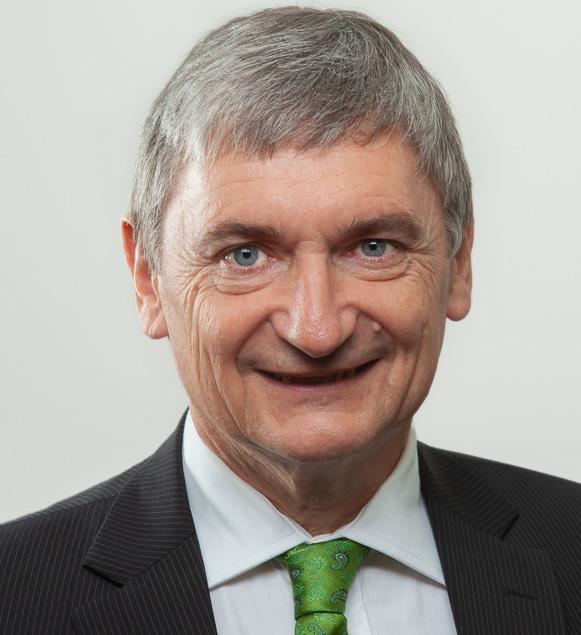
My interview, selection and induction process, like so much of the world, was affected by COVID restrictions and conducted entirely online. I finally met the entire Board in March 2022 and I still have not met our previous President, Lance Lawler, face-to-face. Meeting our staff and our members was done through computer screens, in the face of ever-changing restrictions.
It was an alien environment for most of us, and a time of rapid adjustment and learning. Although I had been an interim CEO at another college, differences between the colleges are significant and when combined with learning how to lead a college remotely, my learning curve was (and still is to an extent), almost vertical. I do appreciate the patience and advice of staff and members while I’ve climbed along that curve. In such an environment, the successes delivered by our staff and our member volunteers over 2021–2022 have been nothing short of extraordinary.
I want to thank our RANZCR staff for their commitment and dedication to deliver for our members under often difficult and unfamiliar circumstances.
To our RANZCR member volunteers, I say this in absolute sincerity. This College could not function without your tireless and generous contribution; and selfless giving of your time and expertise. Please accept my sincere appreciation for all that you do for your College and profession, and the thanks of our staff and our other members for your efforts.
RANZCR released a new IMG Policy to align with the MBA Standards: Specialist medical college assessment of specialist international medical graduates and introduced standards and a process to accredit Area of Need sites to upskill IMGs. Assessments conducted: 27 in NZ, 48 in Australia
IMGs completing pathway: 40 IMG assessors: 29
The Clinical Radiology Series 2 2021 and Series 1 2022 written examinations were mostly delivered via online proctoring within the Practique examination platform allowing candidates to sit examinations from a private location anywhere in the world. An online proctored exam is a timed assessment via an online platform in which the candidates’ desktop activity, webcam video, and audio are monitored.
The new digital examination platform Practique allowed examiners and candidates to be in different locations. A number of resources were prepared to assist candidates, including an examination platform demo webinar; a Viva examination walk-through; a candidate Viva instruction guide; and FAQs for eVivas.
The IT Unit and the Specialty Training Unit (STU) launched the new (Kaizen) ePortfolio System designed to provide members with a significantly enhanced user experience along the continuum of training to continuing professional development (CPD). It replaces the current Trainee Information Management System (TIMS) and CPD Learning Portal for both the Clinical Radiology and Radiation Oncology training and CPD programs and will be able to support future training programs such as IR and INR and upskilling for IMGs.
RANZCR has been accredited as a CPD home by the Australian Medical Council (AMC). We are working with key stakeholders to ensure that the CPD program meets regulatory requirements for our members.
Working closely with the Medical Board of Australia (MBA) and the Medical Council of New Zealand (MCNZ), we have aligned the RANZCR CPD program to the updated CPD standard with the regulators.
RANZCR implemented the CPD ePortfolio system in January 2022, commencing with a transition year for members which introduces some of the new CPD requirements and working towards full compliance by 1 January 2023.
To support the CPD program changes and new CPD ePortfolio, we made a suite of newly developed resources available including ‘how to’ guides, video guides,
Since the launch of new training programs in February 2022, four new induction webinars (two for clinical radiology and two for radiation oncology) and four upskilling workshops (two for clinical radiology and two for radiation oncology) were delivered for Directors of Training and Clinical Supervisors.
RANZCR designed, developed and commenced a full program of web-based and face-to-face information sessions to support the rollout of the 2022 Training Programs and communicate changes to the training program to all members. We developed and published Curriculum Learning Outcomes documents and Training Program Handbooks. The Trainees section of the RANZCR website was restructured to improve the user experience.
Nine committees, one working group and nine position descriptions connected with the Training Program were reviewed and updated.
A comprehensive review of the College’s policies was undertaken with eight policies updated to reflect current practice and align with the 2022 Training Programs.
RANZCR developed a new suite of resources including, AI resources for clinical radiology (CR), the Clinical Radiology Centralised Learning Program, the Radiation Oncology Sciences Workshop Introduction to Oncology Sciences Information Pack, and ePortfolio “how to” videos.
We have collated cultural safety resources on the RANZCR website and embedded the RACP Cultural Safety Course as a mandatory requirement for trainees.
We embedded a research methodology course as a mandatory requirement in the CR Training Program.
340 candidates sat the Part 2 CR examinations in 2021 and 137 passed overall, meaning 192 candidates are eligible for Fellowship subject to completing all other requirements of the training program or IMG assessment requirements.
Thirty-four candidates sat the Phase 1 RO examinations in 2021 and 26 passed.
This means 26 candidates progressed to Phase 2 of the Radiation Oncology Training Program.
RO Phase 2 Viva exams were again successfully delivered virtually in 2021 in ten locations.
Twenty-four candidates sat the Phase 2 RO examinations in 2021 and 13 passed.
This means 13 candidates will be eligible for Fellowship subject to completing all the other requirements of the training program or IMG assessment requirements.
Twenty-one candidates presented for the 2022 Series 1 RO Phase 2 examinations and 13 passed.
This means that 13 candidates will be eligible for Fellowship subject to completing any remaining assessment requirements of the training program or IMG assessment requirements.
RANZCR successfully obtained a grant from the Australian Government, through the Department of Health and Aged Care, to undertake a program of work that will increase the radiology profession’s capacity to perform stillbirth investigations/autopsies and ensure these services are available to bereaved parents who choose to access them.
Between 31 January 2022 and 30 June 2025, the program of work will produce a training package, best practice standards/guidelines, practice support resources and decision support tools.
The challenges of COVID-19 continued this year. Thanks to the efforts of the IT team, innumerable volunteers and all staff, in particular the Specialty Training Unit, the College managed to deliver the training programs and examinations during this time while working online and remotely.
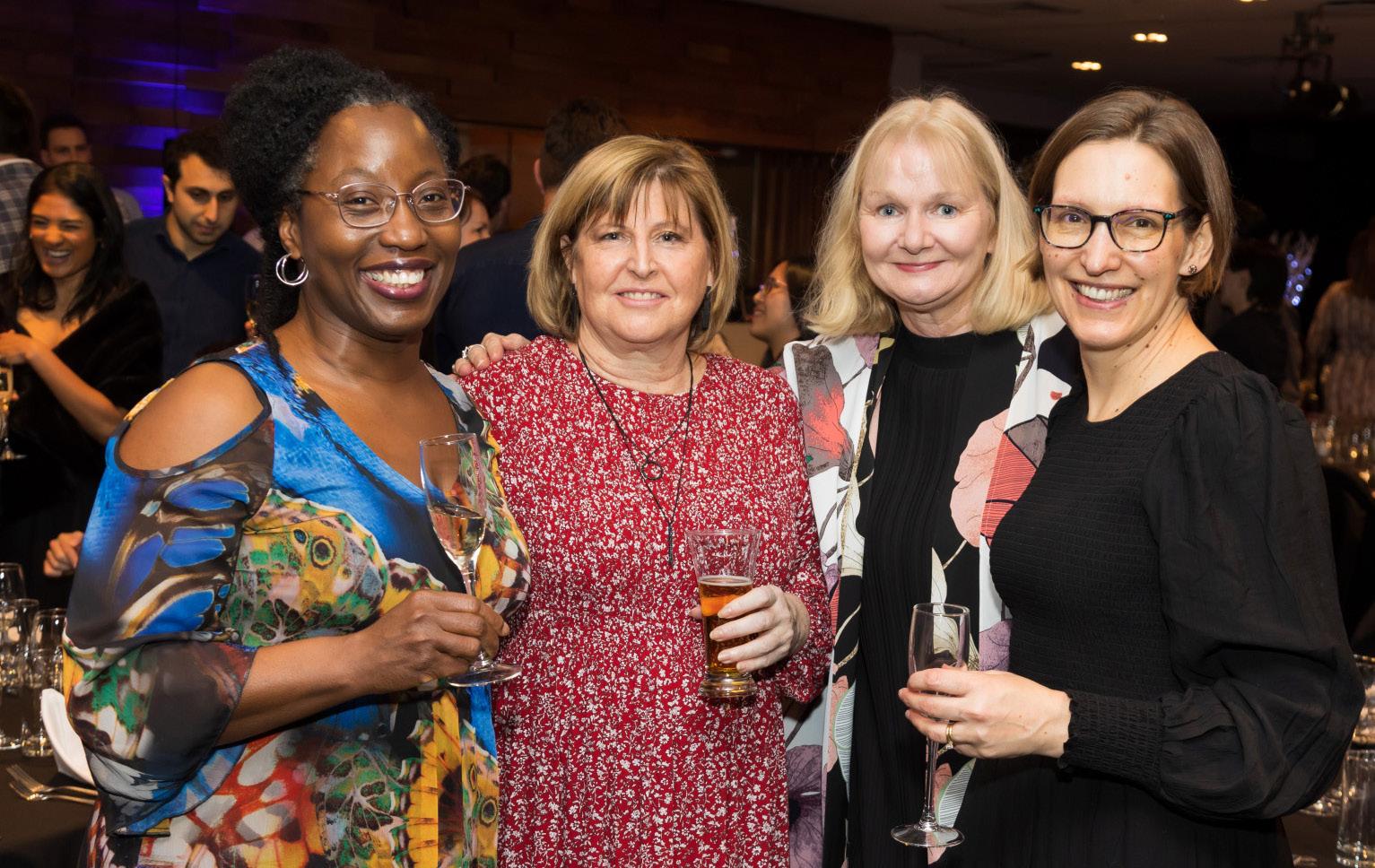

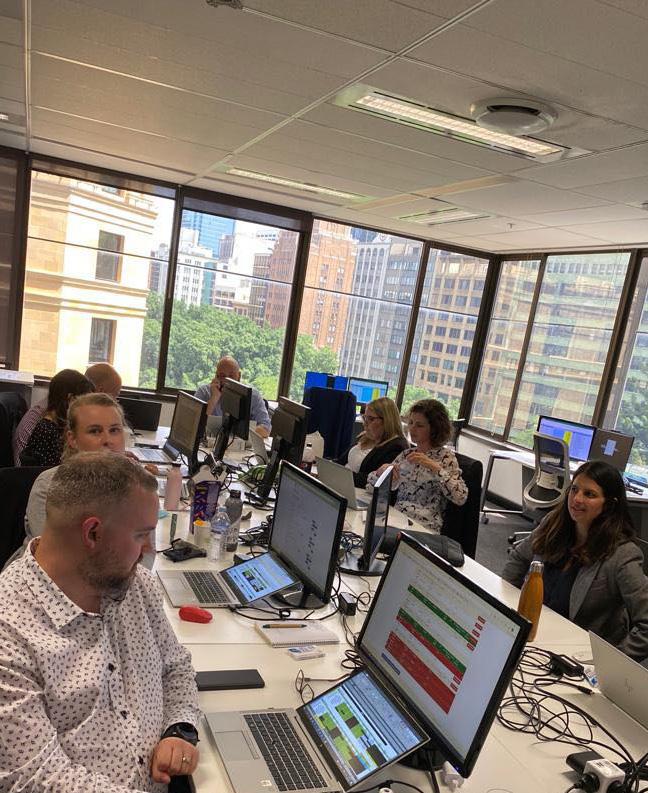
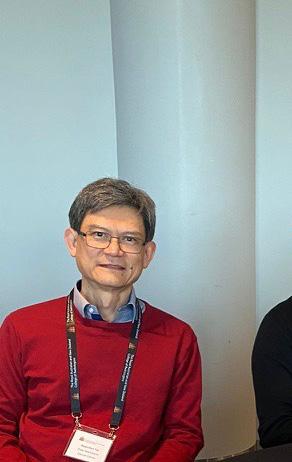


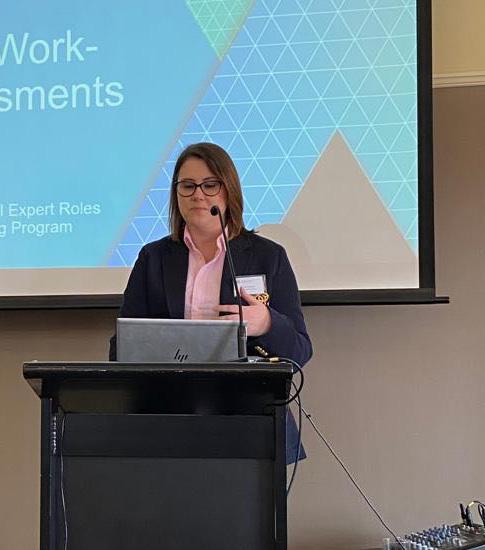
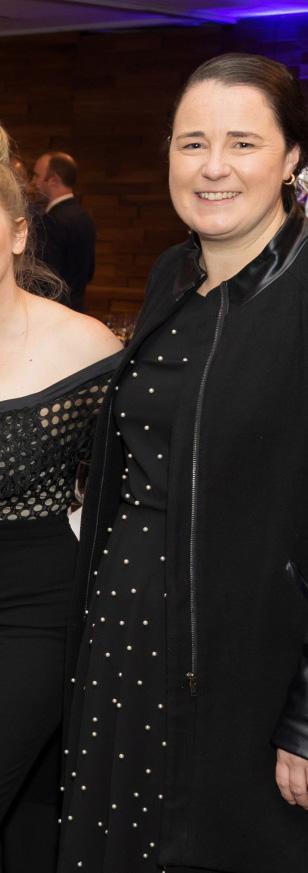
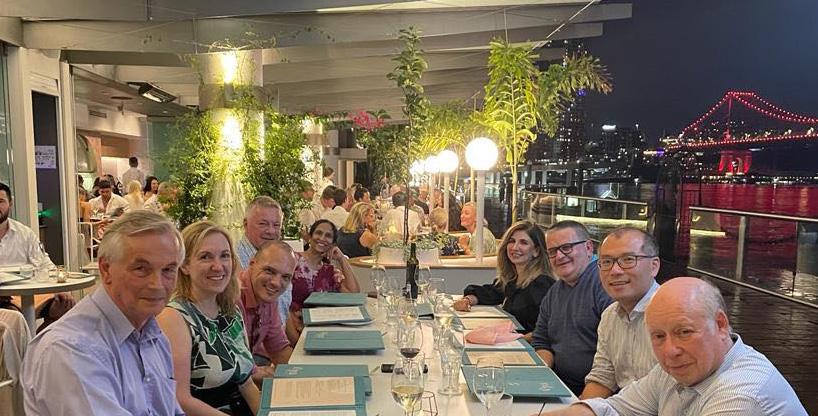

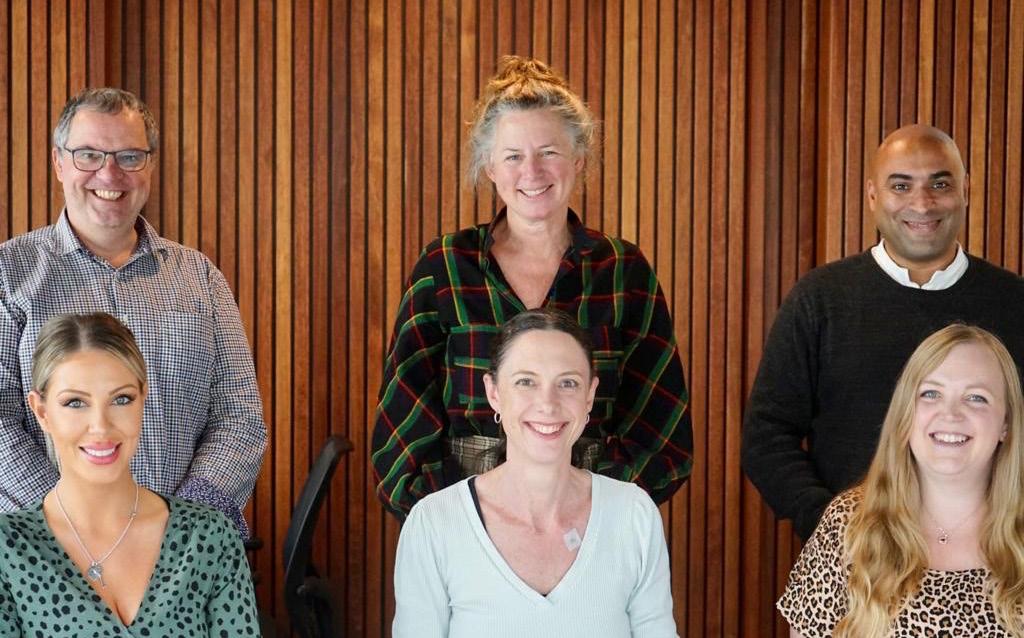
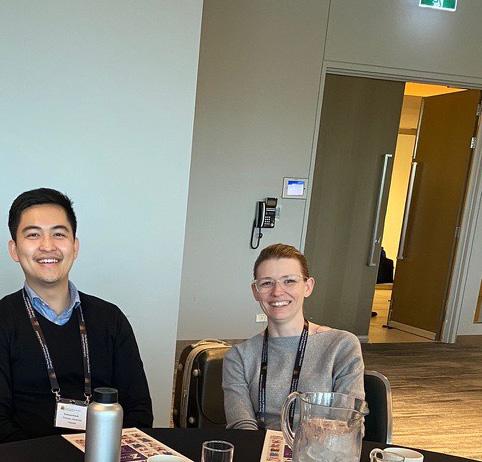

Australian Capital Territory
James Bain Jade Lee
Rowan Stephenson
New South Wales
Anthony Adewumi
Syed Aman Ali John Bamidele
Saima Batool Angela Berning Lucy Blumer Mico Chan Mina Sumin Chung Betsy Dang
Nandula Dantanarayana David Doss Niall Fennessy
Milad Ghasemzadeh Mayooran Kandasamy Maneesh Khanna Amy Khoo
David Kusuma Rebecca Lim Nancy Ma
Lorie Markowsky Stephen McDonald Priya McGregor Richard Noy Richard Pow Samantha Stott Nelson Trieu Anthony Trimboli
Juliana Tsuruta
Bilal Vanlioglu
Stuart Wade Kevin Wanambiro
Jeffrey Wang
Rajkumar Yalawar Meng Xi Zhang
Christina Zhou
New Zealand Kong Au Yong
Natalie Beier
Supriya Cardoza
Jennifer Davidson Malcolm Gill Luke Holmes
Alistair Loan
Christabel Logan Khairul Missa Binti Mohd
Amin Nadir Omar Matthew Page Sophie Parker Andre Poon Akul Sharma Logan Walker
Northern Territory John Mutai Overseas Mei Chin Vineet Gorolay Parveen Sulthana Mohamed Ali Stephanie Tan
Queensland Ahmad Almamlouk Kael Baker Adam Brideaux Jodie Davey Erin Gamble Rivindi Gunasena Rohit Gupta Zishan Haider Jeffrey Hocking John Joseph Ahmed Kamalaldin Sajith Karunasena Manjunatha
Kataveeranahally Shekar
Robert Keays
Mohammad Khan David Kim Natalie Lawrence Hien Lu
Brylie McAllister Nicholas McGrigor Paul Ng Divyajeet Rai
Umar Saeed
Marcelo Santos Teles Maximilian Stephens Han Tie Kim-Trang Thi Tran
Ryan Urgel
Leon Vasquez Chad Wong
South Australia
Naridchaya Aberdour Sisith Ariyaratne Silverton Buraundi Hau Cher Choi Hung Dang Sean Gillen Preeti Gupta Matthew Jarvis Deepa Jayakaran Naseera Khanum Marco Kwok Michael Le Gayle Lim Jiale Ou Gary Perkins Petar Tcherveniakov Michael Truong Tasmania Ramon Banez David Kennedy Kanake Muriuki Ndii Sheyamalan Pathmini Hassan Shoushtari Zadeh
Victoria Ishtiaq Ahmed John Au Davina Bates
Ryan Bose David Carman Caitlin Farmer Grace Florescu Wim Greeff Jack Griffin Benjamin Harrison John Harvey Conor Houlihan Yen Huynh Andrew Imrie Sajida Ishtiaq Erandi Jayawickrama Surjit Jeetoo Saneej Kanhirat
Mae Koima
Orna Komisar
Jonathon Learmont Daniel Liu
Anthony Logaraj
Timothy Lovell
Koyeli Mahata
Andrew McFetridge Maria McGill Luke McManus Goran Mitreski
Matthew Morey Luke O’Day
Inna Page Suraindra Rajadurai Rajeev Ravi Andrew Sanderson Aroha Siilata
Lauren Simionato Annabelle Skelley Michael Stewart Jennifer Tang Anna Taylor Penelope Van Veenendaal Shin-han Leon Winata Edward Yeoh Esther Yu
Western Australia
Jeremy Bates
Gurjeet Dulku Nathalie Falkner Laura Hill Issa Kuria Anton Lavell
Padma Menon
Medagodage Devanath Nalaka Premarathna Udithamala Ratnayake Nadee Senaratna
Toby Struthers
Wasana Thambavitage Paolo Todaro
Troy Wooding Leon Zhang

As such, the College’s financial position is enhanced. The total FY 2022 net surplus is $2.1 million before the unrealised investment loss ($1.94 million). Net income for 2022 is therefore $95,000. Listed below are one-off events impacting 2022 financial performance:
• Receipt of $1.4 million NSW payroll tax refund for the previous five years covering 2016–2021
• Franking credit tax refund received and receivable for prior periods $270,000
The Financial Statements for the year ending 30 June 2022, along with the Auditor’s Report are presented in this document. Detailed versions are available from the College website www.ranzcr.com.
2022 was another challenging year impacted by COVID lockdowns, travel restrictions and global supply chain crises. Despite the disruptions, the College successfully delivered on its core activities.
Although expenses and cashflow were prudently managed, significant additional resources were allocated to ensure critical reforms were supported and the College was able to deliver our examination program to schedule, while meeting AMC requirements for the introduction of new examination formats.
The College was successful in obtaining payroll tax exemption status in NSW and received a $1.4 million one-off refund (for payroll tax submitted over the last five years), with an ongoing payroll tax saving of approximately $450,000 per annum.
• Switch from face-to-face to virtual format for the 2021 RANZCR ASM, due to COVID lockdowns
• Committee and meeting costs $1.1 million below budget resulting from intermittent COVID lockdowns throughout the year
• RANZCR investment portfolios were negatively affected by prevailing market conditions in the first half of 2022, with a net $1.4 million (7.2 per cent) decline in the value of portfolios, due to a number of external and internal factors: Russia invading Ukraine in February 2022, severely impacting global markets and supply chains; repeated Chinese COVID shutdowns, impacting global supply chains; US Central Banks lifting interest rates aggressively to fight inflation, at the cost of economic growth; the Board applying RANZCR’s ESG standards to exit a fund with exposure to Russian steelmaking operations, at a loss of $32,000
• Higher expenditure on information technology to progress, deliver, and maintain the College’s IT infrastructure.
RANZCR was able to maintain a strong policy and advocacy approach and met with Australian and New Zealand Government representatives as well as with state and territory governments, despite the impact of the pandemic. The College has positioned itself as a valuable policy and advocacy stakeholder in our sector and our input is now actively sought by Governmental decisionmakers. The College has achieved considerable success on a number of critical policy issues, an example of which is the Government decision to deregulate MRI in MM 2–7 locations. RANZCR received additional project funding from the Federal Government on digital health projects that align with the College’s Digital Health Whitepaper, with a grant to develop the Radiology Referral Set as a building block for interoperability in digital health.
The College also provided significant input into the Australian Digital Health Agency’s Modernisation of Diagnostic Imaging (MODI) project. Digital health will become an increasing priority for the College now and in the coming years.
The previous Specialist Training Program (STP) funding round concluded in December 2021. RANZCR’s audited acquittal reports were accepted in full. A new funding agreement for 2022–2025 program commenced in February 2022 guaranteeing the extension of the STP programs for a further four years. The College was able to negotiate an increase in the overall operational costs funded by the Department of Health.
The program is more focused on supporting the development of an expanded regional workforce to improve health outcomes for the community. RANZCR is working with the Department of Health on the mid-agreement review and seeking an increase of funding for additional posts.
In an increasingly high-inflation environment, where costs are rising quickly and College activities are expected to return to preCOVID levels, the RANZCR Board recognised the need to safeguard the longer-term financial security of the College. The Board resolved to increase membership subscription fees by 10 per cent, hence the 2022–2023 annual subscription is at AU$3,168 and NZ$3,190 for Fellows and Educational Affiliates.
Education costs have, for some years now, risen well above the standard CPI rate. In the medical specialist area, cost increases have been magnified by the rigorous upgrades and improvements imposed by the AMC on our training and examination program. These cost increases have seen a large and rapidly widening gap between the fees received from our training and examination activities, and the costs involved in delivering this high-quality program.
The Board resolved to reduce this gap to a sustainable level by increasing training and examination fees; and introducing a new admission to membership fee. In introducing this fee, the Board met with and listened to affected trainees and members. From these consultations, the fee level was reduced in the first year and
a framework created to recognise trainees undertaking further training or subject to financial hardship.
The College is grateful for the invaluable support it received from its Fellows, members, corporate supporters and associated organisations throughout the year: detailed acknowledgement is available on page 13 of this report.
The College is also very grateful to Fellows and members who have donated to the Education and Research Fund annual appeal.
Looking ahead, the College is well positioned financially to support our sector and our members and trainees across Australia and New Zealand.
There will be increasing investment in IT infrastructure to provide this support and to deliver against the objectives of the RANZCR three-year plan.
While COVID has proven that remote meetings work, and are now part of the new norm, we all recognise the importance of meeting face-to-face.
With travel and accommodation costs at historical highs, RANZCR’s return to a hybrid meeting model will place pressure on the budget if not managed carefully.
1 September 2022

For the year ended 30 June 2022
Dear Board Members
We have completed our audit of The Royal Australian and New Zealand College of Radiologists (“the College”) for the year ended 30 June 2022
Subject to the adequate resolution of the outstanding matters listed in our report, we confirm that we will issue an unqualified audit opinion on the financial report of the College.
This report is intended solely for the use of the members of the Board of Directors and senior management and should not be used for any other purpose nor given to any other party without our prior written consent.
We would like to thank your staff for the assistance provided to us during the engagement.
I look forward to the opportunity of discussing with you any aspect of this report or any other issue arising from our work.
If you have any queries in the meantime, please feel free to contact us on +612 9264 6733.



Yours faithfully
Grace Shen Director
To the Responsible Entities of The Royal Australian and New Zealand College of Radiologists
In accordance with the requirements of section 60-40 of the Australian Charities and Not-for-profits Commission Act 2012, as lead auditor for the audit of The Royal Australian and New Zealand College of Radiologists for the year ended 30 June 2022, I declare that, to the best of my knowledge and belief, there have been no contraventions of any applicable code of professional conduct in relation to the audit.
Allworths Assurance & Advisory Pty Ltd Level 18, 31 Market Street Sydney NSW Grace Shen Director


Dated: 1 September 2022
Liability limited by a scheme approved under professional Standards Legislation



Statement of Profit or Loss and Other Comprehensive Income
For the year ended 30 June 2022
Consolidated
NOTE 2022 $ 2021 $
Revenue from continuing operations 3 18,020,396 17,449,796
Other income
Interest and dividend income 295,085 451,620
Net (loss)/gain on financial investments at fair value through profit or loss 278,511 315,218
Tax refund (*) 1,689,192Other 11,579 35,050 2,274,367 801,888
*On 17 January 2022, the College received $1.42M payroll tax refund from Revenue NSW for the period from 26 August 2016 to current. On 18 July 2022, the College receives a total of $177K franking credit refund from the Australian Taxation Office for the financial years from 2018 to 2020.
Employee benefits expense (10,010,573) (8,771,908)
Council and committee costs (714,939) (439,931)
Annual Scientific Meeting costs (597,746) -
Printing, publicity and public relations (160,866) (131,542)
Professional, consulting and legal fees (2,498,015) (2,212,301)
Journal production and postage (203,563) (160,516)
Occupancy costs (154,862) (175,459)
Depreciation and amortisation expense 8 (526,191) (471,090)
Accounting and audit fees (40,952) (54,807) Finance costs and banking charges (427,921) (365,146) Communication expense (17,311) (35,473) Other administration expenses (2,868,644) (2,353,790)
For the year ended 30 June 2022
Reserves Accumulated funds Total funds
Consolidated $ $ $
Balance at 1 July 2020 2,426,445 8,736,870 11,163,315 Surplus for the year - 3,079,721 3,079,721
Other comprehensive income/(loss) for the year 12,663,097 - 12,663,097
Total comprehensive income/(loss) for the year 12,663,097 3,079,721 15,742,818
Transfers from reserves to accumulated funds 94,828 94,828 -
Balance at 30 June 2020 15,184,370 11,721,763 26,906,1333
Reserves Accumulated funds Total funds
Consolidated $ $ $
Balance at 1 July 2021 15,184,370 11,721,763 26,906,133 Surplus for the year - 2,073,180 2,073,180
Other comprehensive income for the year (1,977,686) - (1,977,686)
Total comprehensive income for the year (1,977,686) 2,073,180 95,494
Transfers from reserves to accumulated funds (398,061) (398,061)
Balance at 30 June 2022 12,808,623 14,193,004 27,001,627
Royal Australian and New Zealand College of Radiologists Statement of Cash Flows
For the year ended 30 June 2022
Consolidated
NOTE 2022 $ 2021 $
Receipts from grants, managed government programs and COVID-19 funding 12,272,975 5,317,679
Receipts from members 14,818,478 11,643,210 Receipts from exam, training and education, courses, and other service revenue 6,757,708 5,527,996
Other receipts 2,380,721 879,883
Payments to suppliers and employees (30,541,658) (20,572,368)
Net cash from/(used in) operating activities 24 5,688,224 2,796,400
Payments for property, plant and equipment (293,214) (474,848) Net proceeds from /(purchase of) financial assets (273,335) (435,451)
Interest and investment income 295,084 451,620
Net cash from/(used in) investing activities (271,465) (458,679)
Interest and principal payments for lease liabilities 2,762 3,918
Net cash from/(used in) financing activities 2,762 3,918
Net increase in cash and cash equivalents 5,419,521 2,341,639
Cash and cash equivalents at the beginning of the financial year 7,829,460 5,488,082
Effects of exchange rate changes on cash and cash equivalents (33,678) (261)
Cash and cash equivalents at the end of the financial year 4 13,215,303 7,829,460
The above statement of cash flow should be read in conjunction with the accompanying notes found in the full financial report for 2021–2022 on the College website.
in the Year 2021–2022
Roentgen Medal
Prof Robert Bourne
Dr David Brazier
Gold Medal
A/Prof Christopher Atkinson Life Membership
Dr Michael Alcock
A/Prof Lee Coleman
Dr John (William) Childs Prof Michael Poulsen
RESEARCH AWARDS & GRANTS
Withers and Peters Grant Dr Nick Bucknell
Faculty of Radiology Bourne and Langlands Prize
Dr Wee Loon Ong
Clinical Radiology
Early Career Researchers Prize Dr Michael Chan Quality Research Prize Dr Wee Long Ong
Clinical Radiology Research Grants A/Prof Christen Barras Dr Nicholas Brown Dr Michael Stewart
Radiation Oncology Research Grants
Dr Wee Long Ong Dr Joseph Sia Dr Daniel Xing Dr Janice Yeh
Bill Hare Fellowship Dr Liesl Celliers
Thomas Baker Fellowship Dr Michelle Li Windeyer Fellowship Dr Shilpa Narula
EXAM PRIZES
CE Eddy Prize RO Part 1 Dr Bo Mi Kim
CE Eddy Prize CR Part 1 Dr Shanalie Dias
HR Sear Prize CR Part 2 Dr Nicholas Karsz
HR Sear Prize CR Part 2 Dr Aden McLaughlin
MGF Donnan Prize CR Part 2 Dr Sarah Robertson
Uhr Clarke Bursary (QLD) Dr Stephanie Tan
ASM AWARDS & PRIZES
Clinical Radiology
Wiley Best Exhibit Award Dr Sandeep Tiwari
Medical Wealth Advisory Award
Dr Zemar Vajuhudeen
I-Med Reviewer Best Emergency Scientific Exhibit Prize
Dr Chris Luis Branch of Origin Award Dr Hugh McHugh
Radiation Oncology Wiley Best Exhibit Award Dr Michelle Or
Medical Wealth Advisory Award
Dr Wee Loon Ong
Chris Atkinson Award Dr Shankar Siva Elekta Award Dr Shankar Siva
Varian Prize Dr Mihir Shanker
It is with regret that we record the deaths of the following members during the year under review:
Dr Bruce Kynaston Life member QLD
Dr Laurence Lees Fellow NSW
Dr Bernard Mason Life member QLD
Dr James McCormick Fellow NZ
Dr Bruce Roberts Fellow NSW
Dr Leslie Wong Shee Fellow VIC
Dr Christopher Wood Fellow WA
Sydney Office
Level 9, 51 Druitt Street, Sydney NSW 2000, Australia. ABN 37 000 029 863
T +61 2 9268 9777
E ranzcr@ranzcr.edu.au
Wellington Office
Floor 6, 142 Lambton Quay, Wellington, New Zealand
T +64 4 472 6470
E nzbranch@ranzcr.org.nz
www.ranzcr.com
Copyright for this publication rests with The Royal Australian and New Zealand College of Radiologists